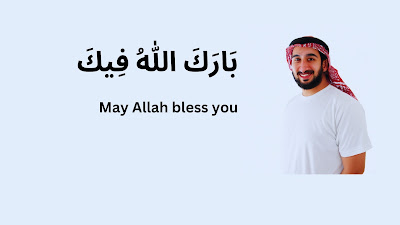How to Say Du’a to Someone: A List of Heartfelt Supplications for Well-Wishing
Du’a is a form of supplication or invocation that Muslims make to Allah, the Almighty. It is a way of expressing one’s needs, desires, gratitude, and praise to the Creator.
Du’a can be made at any time, in any language, and in any situation. However, there are some specific du’as that have been taught by the Prophet Muhammad (peace be upon him) and his companions, which are recommended to say in certain occasions or to certain people. These du’as are based on the Qur’an and the Sunnah, and have many benefits and rewards for the one who says them and the one who receives them.
In this article, we will list some of the du’as that can be said to someone, either as a greeting, a farewell, a congratulation, a consolation, or a general wish.
These du’as are in Arabic, with their English translation and transliteration. We hope that this article will help you learn and practice these beautiful du’as, and increase your bond with Allah and with your fellow Muslims.
A Compilation of Heartfelt Du'as for Well-Wishing
1. حَفِظَكَ اللهُ
- Translation: May Allah preserve you.
- Transliteration: Hafizakallahu
- This du’a can be said to someone who is leaving or traveling, as a way of asking Allah to protect them from any harm or evil. It can also be said to someone who is doing a good deed or a noble task, as a way of asking Allah to help them continue and succeed in it.
- Translation: May Allah strengthen you.
- Transliteration: Qawwakallahu
- This du’a can be said to someone who is facing a difficulty, a challenge, or a hardship, as a way of asking Allah to give them strength, patience, and perseverance. It can also be said to someone who is doing a good deed or a noble task, as a way of asking Allah to increase them in power and ability.
3. صَانَكَ اللهُ
- Translation: May Allah take care of you.
- Transliteration: Sanakallahu
- This du’a can be said to someone who is leaving or traveling, as a way of asking Allah to take care of their affairs and needs. It can also be said to someone who is sick or injured, as a way of asking Allah to heal them and cure them.
4. بَارَكَ اللهُ فِيكَ
- Translation: May Allah bless you.
- Transliteration: Barakallahu feek
- This du’a can be said to someone who has done something good or beneficial, as a way of expressing gratitude and appreciation. It can also be said to someone who has achieved something or received something good, as a way of congratulating them and wishing them more blessings.
5. سَدَّدَكَ اللهُ
- Translation: May Allah guide you.
- Transliteration: Saddadakallahu
- This du’a can be said to someone who is seeking knowledge, guidance, or truth, as a way of asking Allah to show them the right path and the correct way. It can also be said to someone who is doing a good deed or a noble task, as a way of asking Allah to make their efforts fruitful and successful.
6. أَسْعَدَكَ اللهُ
- Translation: May Allah make you happy.
- Transliteration: As’adakallahu
- This du’a can be said to someone who is sad, depressed, or worried, as a way of asking Allah to remove their sorrow and distress, and to fill their heart with joy and happiness. It can also be said to someone who is celebrating a happy occasion, such as a birthday, a wedding, or a birth, as a way of sharing their happiness and wishing them more happiness.
7. يَسَّرَ اللهُ أَمْرَكَ
- Translation: May Allah make your affair easy.
- Transliteration: Yassarallahu amrak
- This du’a can be said to someone who is facing a difficulty, a challenge, or a hardship, as a way of asking Allah to make their situation easy and smooth, and to remove any obstacles or complications. It can also be said to someone who is starting a new project, a new job, or a new journey, as a way of asking Allah to make their affair easy and successful.
8. جَعَلَ اللهُ عِيْشَةَ رَغِيدًا
- Translation: May Allah make your life pleasant.
- Transliteration:Ja’alallahu 'ishata raghida
- This du’a can be said to someone who is living a hard or miserable life, as a way of asking Allah to make their life pleasant and comfortable, and to grant them peace and tranquility. It can also be said to someone who is living a good or prosperous life, as a way of asking Allah to make their life pleasant and continuous, and to protect them from any harm or evil.
9. جَعَلَكَ اللهُ مُبَارَكًا أَيْنَمَا كُنْتَ
- Translation: May Allah make you blessed wherever you are.
- Transliteration:
- A Du'a expressing the wish for blessings to accompany the individual regardless of their location or circumstances.
10. صَبَّ اللهُ عَلَيْكَ الْخَيْرَ صَبًّا
- Translation: May Allah pour forth abundant good on you.
- Transliteration: Sabbalallahu 'alaikal khaira sabba
- This du’a can be said to someone who has done something good or beneficial, as a way of expressing gratitude and appreciation, and asking Allah to reward them with abundant good. It can also be said to someone who has achieved something or received something good, as a way of congratulating them and wishing them more good.
11. فَتَحَ اللهُ لَكَ أَبْوَابَ الْخَيْرَاتِ
- Translation: May Allah open the doors of good for you.
- Transliteration: Fatahallahu laka abwabal khairati
- This du’a can be said to someone who is seeking opportunities, chances, or possibilities, as a way of asking Allah to open the doors of good for them, and to grant them access to the best and most beneficial things. It can also be said to someone who is facing difficulties, challenges, or hardships, as a way of asking Allah to open the doors of good for them, and to grant them relief and solutions.
12. رَزَقَكَ اللهُ مِنْ حَيْثُ لَا تَحْتَسِبُ
- Translation: May Allah provide for you from where you could never imagine.
- Transliteration: Razaqakallahu min haithu la tahtasib
- This du’a can be said to someone who is in need, poverty, or debt, as a way of asking Allah to provide for them from where they could never imagine, and to grant them sufficiency and richness. It can also be said to someone who is wealthy, prosperous, or generous, as a way of asking Allah to provide for them from where they could never imagine, and to grant them increase and gratitude.
13. أَغَاثَكَ اللهُ
- Translation: May Allah help you.
- Transliteration: Aghathakallahu
- This du’a can be said to someone who is in trouble, danger, or distress, as a way of asking Allah to help them and to save them from their situation. It can also be said to someone who is helping, supporting, or assisting others, as a way of asking Allah to help them and to reward them for their service.
14. أَصْلَحَ اللهُ ذُرِّيَّتَكَ
- Translation: May Allah put right your offspring.
- Transliteration: Aslahallahu dhurriyyatak
- This Du'a is a heartfelt wish for the well-being, guidance, and righteousness of the individual's descendants. This du’a can be said to someone who has children, as a way of asking Allah to put right their offspring, and to make them righteous, obedient, and successful. It can also be said to someone who is expecting a child, as a way of asking Allah to put right their offspring, and to make them healthy, beautiful, and blessed.
15. خَتَمَ اللهُ لَكَ بِالْحُسْنَى
- Translation: May Allah grant you a good ending.
- Transliteration: Khatamallahu laka bil husna
- A prayer for a noble and virtuous conclusion to one's life, asking Allah for a positive and righteous end. This du’a can be said to someone who is near death, as a way of asking Allah to grant them a good ending, and to make their last deeds and words the best. It can also be said to someone who is alive, as a way of asking Allah to grant them a good ending, and to make their life and death in a state of faith and obedience.
These Du'as, deeply rooted in Islamic tradition, serve as a means of expressing genuine care, love, and positive intentions for others.
As Muslims, incorporating these supplications into our interactions fosters a culture of goodwill, empathy, and shared blessings within the community.
May these Du'as become a source of comfort and inspiration for those who receive them, strengthening the bonds of brotherhood and sisterhood in the light of Islamic teachings.
List of Arabic vocabulary we can learn and memorize from the du'as
1. حَفِظَ (hafiza)
The meaning of hafiza:
a. preserve, protect, save, secure, maintain
b. know by heart, learn by heart, memorize
c. look after, care for
Forms
a. فعل الماضي (fi'l madi): حَفِظَ (hafiza)
b. فعل المضارع (fi'l mudari'): يَحْفَظُ (yahfazu)
c. فعل الأمر (fi'l amr): اِحْفَظْ (ihfaz)
2. قَوَّى (qawwa)
The meaning of qawwa: strengthen, harden, reinforce, support.
Forms
a. فعل الماضي (fi'l madi): قَوَّى (qawwa)
b. فعل المضارع (fi'l mudari'): يُقَوِّي (yuqawwi)
c. فعل الأمر (fi'l amr): قَوِّ (qawwi)
3. صَانَ (saana)
The meaning of saana: take care, conserve, maintain, preserve, protect, service
Forms
a. فعل الماضي (fi'l madi): صَانَ (saana)
b. فعل المضارع (fi'l mudari'): يَصُونُ (yasuunu)
c. فعل الأمر (fi'l amr): صُنْ (sun)
4. بَارَكَ (baaraka)
The meaning of baaraka: bless, congratulate, endorse
Forms
a. فعل الماضي (fi'l madi): بَارَكَ (baaraka)
b. فعل المضارع (fi'l mudari'): يُبَارِكُ (yubaariku)
c. فعل الأمر (fi'l amr): بَارِكْ (baarik)
5. سَدَّدَ (saddada)
The meaning of saddada:
a. direct, guide, aim
b. pay, satisfy, settle
Forms
a. فعل الماضي (fi'l madi): سَدَّدَ (saddada)
b. فعل المضارع (fi'l mudari'): يُسَدِّدُ (yusaddidu)
c. فعل الأمر (fi'l amr): سَدِّدْ (saddid)
6. أَسْعَدَ (as'ada)
The meaning of as'ada: make (someone) happy
Forms
a. فعل الماضي (fi'l madi): أَسْعَدَ (as'ada)
b. فعل المضارع (fi'l mudari'): يُسْعِدُ (yus'idu)
c. فعل الأمر (fi'l amr): أَسْعِدْ (as'id)
7. يَسَّرَ (yassara)
The meaning of yassara: make (something) easier
Forms
a. فعل الماضي (fi'l madi): يَسَّرَ (yassara)
b. فعل المضارع (fi'l mudari'): يُيَسِّرُ (yuyassiru)
c. فعل الأمر (fi'l amr): يَسِّرْ (yassir)
8. أَمْرٌ (amrun)
The meaning of amrun: matter, affair, business.
Forms
amrun is اسم (noun). It is singular form.
The plural form of amrun is أُمُورٌ (umuurun).
9. جَعَلَ (ja'ala)
The meaning of ja'ala: make, appoint, set.
Forms
a. فعل الماضي (fi'l madi): جَعَلَ (ja'ala)
b. فعل المضارع (fi'l mudari'): يَجْعَلُ (yaj'alu)
c. فعل الأمر (fi'l amr): اِجْعَلْ (ij'al)
10. عِيشَةٌ ('iishatun)
The meaning of 'ishatun: life
'iishatun is اسم or noun.
11. رَغِيدٌ (raghiidun)
The meaning of raghiidun: pleasant, comfortable, easy.
رَغِيدٌ is اسم or noun.
12. صَبَّ (sabba)
The meaning of sabba: pour, flow
Forms
a. فعل الماضي (fi'l madi): صَبَّ (sabba)
b. فعل المضارع (fi'l mudari'): يَصَبُّ (yasabbu)
c. فعل الأمر (fi'l amr): اِصْبَبْ (isbab)
13. خَيْرٌ (khayrun)
The meaning of khayrun: good
khayrun is اسم (ism) or noun.
Forms
khayrun is singular noun.
The plural form of khayrun is خِيَارٌ (khiyaarun), أَخْيَارٌ (akhyarun).
14. فَتَحَ (fataha)
The meaning of fataha: open. conquer
Forms
a. فعل الماضي (fi'l madi): فَتَحَ (fataha)
b. فعل المضارع (fi'l mudari'): يَفْتَحُ (yaftahu)
c. فعل الأمر (fi'l amr): اِفْتَحْ (iftah)
15. أَبْوَابٌ (abwaabun)
The meaning of abwaabun:
a. door, gate, doorway, entrance/entry
b. chapter
Forms
abwaabun is plural noun.
The singular form of abwaabun is بَابٌ (baabun).
16. رَزَقَ (razaqa)
The meaning of razaqa: provide with (something/the means of subsistence), endow with.
Forms
a. فعل الماضي (fi'l madi): رَزَقَ (razaqa)
b. فعل المضارع (fi'l mudari'): يَرْزُقُ (yarzuqu)
c. فعل الأمر (fi'l amr): اُرْزُقْ (urzuq)
17. حَيْثُ (haithu)
The meaning of haithu: any place, wherever, wherein
haithu is ظَرْفُ مَكَانٍ (zarf makan) or adverb of place, in Arabic, it is classified as a noun.
18. أَغَاثَ (aghaatha)
The meaning of aghaatha: assist, support, aid, help.
Forms
a. فعل الماضي (fi'l madi): أَغَاثَ (aghaatha)
b. فعل المضارع (fi'l mudari'): يُغِيثُ (yughiithu)
c. فعل الأمر (fi'l amr): أَغِثْ (aghith)
19. أَصْلَحَ (aslaha)
The meaning of aslaha: make (something) better, repair, reconcile, restore to good condition, put (something) right.
Forms
a. فعل الماضي (fi'l madi): أَصْلَحَ (aslaha)
b. فعل المضارع (fi'l mudari'): يُصْلِحُ (yuslihu)
c. فعل الأمر (fi'l amr): أَصْلِحْ (aslih)
20. ذُرِّيَّةٌ (dhurriyyatun)
The meaning of dhurriyyatun: descendants, offspring, son/daughter
Forms
dhurriyyatun is singular form.
The plural form of dhurriyyatun is ذُرِّيَّاتٌ (dhurriyyaat).
21. خَتَمَ (khatama)
The meaning of khatama: end, close, bring to completion, bring to a conclusion, finish off/complete, seal, stamp.
Forms
a. فعل الماضي (fi'l madi): خَتَمَ (khatama)
b. فعل المضارع (fi'l mudari'): يَخْتِمُ (yakhtimu)
c. فعل الأمر (fi'l amr): اِخْتِمْ (ikhtim)
22. حُسْنَى (husna)
The meaning of husna: good result, good outcome, goodness, better, the best.
Forms
husna is مؤنّث or feminine form.
The masculine form of husna is أَحْسَنُ (ahsan).




No comments:
Post a Comment